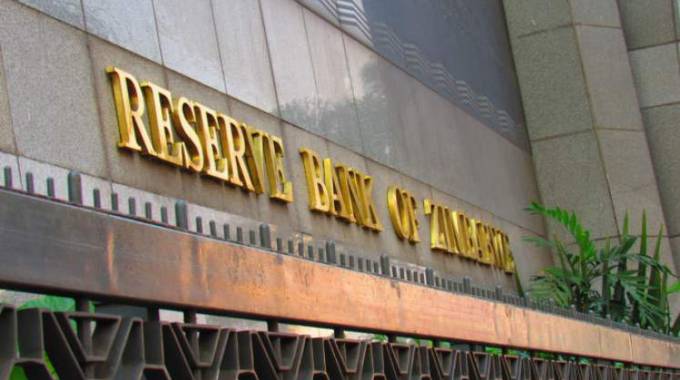
The Sunday Mail

Business Reporter
The slowdown in money supply after a record interest rate hike by the Reserve Bank of Zimbabwe (RBZ) and the ongoing clampdown on inflated invoices from Government suppliers and contractors have helped underpin the exchange rate and price stability, market watchers say.
Money supply refers to the total volume of currency held by the public at a particular time.
In July this year, the central bank raised the bank policy rate from 80 percent to 200 percent to reduce demand for local currency, which was being used to speculate in the equities and currency markets, thereby driving inflation and currency depreciation.
The Zimdollar lost ground as a result of exogenous factors such as rising global commodity prices due to the Russia-Ukraine conflict.
Similarly, overpriced contracts, as Government suppliers took advantage of loopholes in the public procurement system to front-load parallel market exchange rates in their pricing, contributed significantly to the build-up of excess liquidity in the market.
Treasury, however, responded by suspending payments on all public contracts and directed ministries, departments and agencies to review all prices pegged using parallel market rates to ensure they are fair and comply with the willing-buyer, willing-selling pricing regime.
The Government took advantage of its leverage as the biggest procurer in the economy to demand correct pricing for goods and services.
Market watchers believe high interest rates and Treasury’s value-for-money audits significantly curtailed money supply growth, taking huge pressure off the domestic currency, which culminated in inflation and exchange rate stability.
Zimbabwe National Chamber of Commerce chief executive officer Mr Christopher Mugaga said a marked slowdown in money supply was the biggest reason there has been growing exchange rate and inflation stability.
“For those who follow the numbers, you can actually see that there has been a reduction in money supply (since the end of July 2022).
“Too much money supply results in inflation and exchange rate depreciation,” Mr Mugaga said.
The insistence on proper pricing by the Government, he said, had played a major part, helping the Zimbabwe dollar appreciate in value.
Finance and Economic Development Minister Professor Mthuli Ncube recently said the Government would regulate the
flow of liquidity into the market and continue to discourage inflated prices for
public contracts through value-for-money audits.
Economist Mr Eddie Cross said “there was very strong control on domestic money supply”.
Finance and Economic Development Permanent Secretary Mr George Guvamatanga indicated that the Government continues to process payments, especially for those whose prices were considered
fair.
He said the Zimbabwe dollar was expected to further strengthen on account of tight liquidity conditions as companies liquidate their US dollar holdings and investments in stocks to pay their quarterly tax obligations. Business Reporter
The slowdown in money supply after a record interest rate hike by the Reserve Bank of Zimbabwe (RBZ) and the ongoing clampdown on inflated invoices from Government suppliers and contractors have helped underpin the exchange rate and price stability, market watchers say.
Money supply refers to the total volume of currency held by the public at a particular time.
In July this year, the central bank raised the bank policy rate from 80 percent to 200 percent to reduce demand for local currency, which was being used to speculate in the equities and currency markets, thereby driving inflation and currency depreciation.
The Zimdollar lost ground as a result of exogenous factors such as rising global commodity prices due to the Russia-Ukraine conflict.
Similarly, overpriced contracts, as Government suppliers took advantage of loopholes in the public procurement system to front-load parallel market exchange rates in their pricing, contributed significantly to the build-up of excess liquidity in the market.
Treasury, however, responded by suspending payments on all public contracts and directed ministries, departments and agencies to review all prices pegged using parallel market rates to ensure they are fair and comply with the willing-buyer, willing-selling pricing regime.
The Government took advantage of its leverage as the biggest procurer in the economy to demand correct pricing for goods and services.
Market watchers believe high interest rates and Treasury’s value-for-money audits significantly curtailed money supply growth, taking huge pressure off the domestic currency, which culminated in inflation and exchange rate stability.
Zimbabwe National Chamber of Commerce chief executive officer Mr Christopher Mugaga said a marked slowdown in money supply was the biggest reason there has been growing exchange rate and inflation stability.
“For those who follow the numbers, you can actually see that there has been a reduction in money supply (since the end of July 2022).
“Too much money supply results in inflation and exchange rate depreciation,” Mr Mugaga said.
The insistence on proper pricing by the Government, he said, had played a major part, helping the Zimbabwe dollar appreciate in value.
Finance and Economic Development Minister Professor Mthuli Ncube recently said the Government would regulate the
flow of liquidity into the market and continue to discourage inflated prices for
public contracts through value-for-money audits.
Economist Mr Eddie Cross said “there was very strong control on domestic money supply”.
Finance and Economic Development Permanent Secretary Mr George Guvamatanga indicated that the Government continues to process payments, especially for those whose prices were considered
fair.
He said the Zimbabwe dollar was expected to further strengthen on account of tight liquidity conditions as companies liquidate their US dollar holdings and investments in stocks to pay their quarterly tax obligations.



